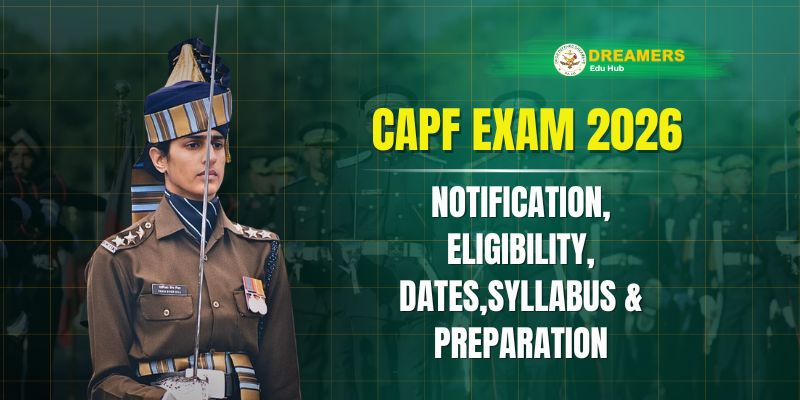The CBSE 10 Exam represents a significant milestone in every student’s academic journey. More than 39 lakh students will appear for the 2025 10th board exams. This phase is one of the most crucial steps in your educational path. The CBSE Class 10 Board Exams 2025 are expected to begin in February 2025, likely around the mid or third week of the month.
The 10th board exam system stands out because students can keep scores from their best attempt. The exam pattern allocates 100 marks per subject. The board exam accounts for 80 marks and internal assessment takes up 20 marks. Students need to score at least 33% in both components to pass according to the cbse grading system. This piece covers everything you should know about the cbse exam pattern, complete cbse syllabus, preparation strategies that work, and study resources to help you achieve excellence in your boards.
CBSE Class 10 Exam Pattern 2025-26
1. Structure of the exam (Theory + Internal Assessment)
The 10th board exam uses a detailed assessment model that balances theory and practical skills. Each 10 subject in the cbse class 10 curriculum is reviewed through:
- Theory Examination: 80 marks (conducted externally by CBSE)
- Internal Assessment: 20 marks (conducted by schools)
Students must score at least 33% marks in both parts to pass.
The 20-mark internal assessment has:
- Periodic Tests (5 marks)
- Practical Work/Subject Enrichment Activities (5 marks)
- Assignments & Projects (5 marks)
- Portfolio Assessments (5 marks)
2. Types of questions: MCQs, case-based, short/long answers
The cbse 10 exam question papers test different cognitive skills through various formats:
- Multiple Choice Questions (MCQs): Questions that test recall and knowledge
- Case-Based Questions: Questions based on scenarios that need analysis
- Assertion-Reasoning Questions: Questions that test logical thinking
- Short Answer Questions: Answers between 40-60 words
- Long Answer Questions: Detailed answers in 120 words
- Very Short Answer Questions: One-word or one-sentence answers
The 2025-26 exam pattern focuses on competency based questions (40%), objective-type questions (20%), and short/long answer questions (40%).
3. Subject-wise marks distribution
Each 10 subject divides marks among different question types:
Mathematics:
- 20 MCQs (1 mark each)
- 5 Very Short Answer (2 marks each)
- 6 Short Answer (3 marks each)
- 4 Long Answer (5 marks each)
- 3 Case Study-Based (4 marks each)
Science:
- Section A (Biology): Most marks
- Section B (Chemistry) and Section C (Physics): Equal marks
The science paper pattern ensures a balanced assessment across all three branches.
Social Science:
- Four sections (History, Geography, Political Science, Economics) with 20 marks each
- Map-based questions (5 marks)
Class 10 English:
- Reading comprehension
- Writing skills
- Literature and grammar sections
4. Duration and mode of examination
Students take all cbse 10 exam theory exams offline with pen and paper for 3 hours per subject. The board will give mark sheets showing both attempt scores and highlight the better marks. This new system helps reduce student stress and offers more flexibility as suggested by NEP 2020 guidelines.
CBSE Class 10 Syllabus 2025-26 (Subject-wise Table)
Students need a good grasp of the cbse syllabus to prepare well for exams. The Central Board of Secondary Education recently published its official syllabus class 10 for 2025-26. This cbse 10th syllabus gives students a well-laid-out path to follow. Let’s get into each subject’s details.
1. Science
The 10 science syllabus splits into five units. Students can score 80 marks in theory and 20 marks through internal assessment. Here’s how the marks break down:
|
Unit |
Topics |
Marks |
| Chemical Substances | Chemical reactions, Acids/Bases, Metals/Non-metals, Carbon compounds | 25 |
| World of Living | Life processes, Control/Coordination, Reproduction, Heredity | 25 |
| Natural Phenomena | Reflection, Refraction, Lenses, Human eye | 12 |
| Effects of Current | Electric current, Resistance, Heating effect | 13 |
| Natural Resources | Environment, Eco-system, Waste management | 5 |
Students should focus on chemical equations, carbon compounds, human physiology, and optics.
2. Mathematics
The Mathematics syllabus class 10 has seven units worth 80 marks total. Here’s the breakdown:
|
Unit |
Topics |
Marks |
| Number Systems | Real numbers, Fundamental Theorem of Arithmetic | 6 |
| Algebra | Polynomials, Linear equations, Quadratic equations, AP | 20 |
| Coordinate Geometry | Distance formula, Section formula | 6 |
| Geometry | Triangles, Circles, Tangents | 15 |
| Trigonometry | Trigonometric ratios, Identities, Heights and distances | 12 |
| Mensuration | Areas related to circles, Surface areas and volumes | 10 |
| Statistics & Probability | Mean, median, mode, Classical probability | 11 |
Algebra gets the most marks, with Geometry and Trigonometry coming next.
3. Social Science
The class 10 sst exam splits evenly into four parts. Each part carries 20 marks:
|
Subject |
Key Chapters |
Marks |
| History | Rise of Nationalism in Europe, Nationalism in India, Making of Global World | 20 |
| Geography | Resources, Wildlife, Water, Agriculture, Minerals, Manufacturing | 20 |
| Political Science | Power-sharing, Federalism, Gender/Religion/Caste, Political Parties | 20 |
| Economics | Development, Sectors of Indian Economy, Money and Credit, Globalization | 20 |
Map-pointing questions in History and Geography sections are worth 2-3 marks.
4. English
The class 10 english Language and Literature syllabus divides into three main sections:
|
Section |
Content |
Marks |
| Reading Skills | Unseen passages (discursive and case-based) | 20 |
| Writing & Grammar | Formal letter, Analytical paragraph, Grammar exercises | 20 |
| Literature | First Flight (prose/poetry), Footprints Without Feet | 40 |
The grammar section covers determiners, tenses, modals, and reported speech. Literature texts include “A Letter to God” and “The Thief’s Story.”
5. Hindi
Students in cbse class x can choose between Hindi Course A (Code 002) and Hindi Course B (Code 085). Both courses follow this pattern:
|
Section |
Course A Topics |
Marks |
| अपठित बोध | Unseen prose and poetry comprehension | 14 |
| व्याकरण | Grammar including sentence types, voice, and figures of speech | 16 |
| पाठ्यपुस्तक | क्षितिज (prose/poetry) and कृतिका (supplementary reader) | 30 |
| रचनात्मक लेखन | Creative writing (paragraphs, letters, emails) | 20 |
Course B uses different textbooks – स्पर्श and संचयन, but keeps the same mark distribution.
Preparation Strategy for CBSE Class 10 Board Exams
Your success in 10th board exams goes beyond just knowing the syllabus—you need a smart way to prepare. Here are proven strategies that can help you excel in your cbse 10 exam.
1. How to create a study timetable
A well-laid-out timetable forms the foundations of 10th board exam preparation. You should allocate specific time blocks for each subject based on their complexity and your proficiency. The 60:40 rule works best—use 60% of your time to learn new topics and 40% for revision and practice tests. On top of that, use the Pomodoro technique (25 minutes study + 5 minutes break) to stay focused and avoid burnout. Mix different subjects throughout the week to keep your interest alive.
2. Importance of revision and mock tests
Regular revision helps move information from short-term to long-term memory, which makes it easier to recall during exams. In fact, you should revisit key concepts at least 2-3 times to retain the information better. Mock tests are valuable especially when you have to face real exam conditions. They help you understand the pattern and manage time better. So, taking cbse sample tests helps you spot weak areas and shows which topics need more practice. Use flashcards and mind maps for important concepts to improve quick revision sessions.
3. Time management during preparation
Time management is a vital part of 10th exam success. Split your yearly syllabus into monthly and weekly study goals (e.g., Week 1: Complete 2 chapters of Math + 1 chapter of Chemistry). Give more time to tough subjects while making sure all subjects get enough attention. Get 7-8 hours of sleep and do some physical activity daily to stay healthy while studying. Check your progress every two weeks and adjust your schedule.
4. Tips for last month preparation
The final month before your 10th board exams is the time to consolidate everything. Focus mainly on revision instead of new topics. Work through at least five previous year question papers to get familiar with the exam pattern and expected questions. Set timers during mock tests to practice time management. Use the 15-minute reading time during the actual exam to analyze the question paper and plan your answers. Class 10 textbook materials should be your main resource during this vital phase.
5. Common mistakes to avoid
Students often hurt their 10 cbse performance through these mistakes:
- Poor time management – too much time on few questions or starting with unfamiliar ones
- Skipping diagrams – missing required illustrations, especially in Science
- Unstructured answers – writing paragraphs without headings, bullets, or key points
- Procrastination – pushing preparation to the last moment
- Not revising answer sheets before submission – missing chances to fix mistakes
Study Resources for 10th Class CBSE Board
Quality study materials give you the tools you need to succeed in your cbse 10 exam. The right resources will reshape the scene of your preparation and make concepts clearer.
1. NCERT textbooks and solutions
NCERT books are the foundations of 10th board exam preparation because most exam questions come straight from these textbooks. Students can get these books in English and Hindi. Subject experts design these books with step-by-step concept explanations. NCERT solutions provide detailed answers to exercise questions that help you master problem-solving techniques.
2. Sample papers and previous year papers
CBSE releases official cbse sample papers every year that show the latest exam pattern. You should solve at least 5-6 previous year question papers to understand common topics. These papers help you:
- Manage your time better
- Spot key topics
- Learn marking patterns
- Get comfortable with exam conditions
3. Recommended reference books
|
Subject |
Recommended Books |
| Mathematics | R.D. Sharma, R.S. Aggarwal |
| Science | Lakhmir Singh & Manjit Kaur |
| English | Golden English |
| Social Science | S. Chand publications |
4. Flashcards and revision notes
Flashcards boost active recall and help with long-term retention. Students find them great for learning formulas, scientific concepts, and historical events. These tools help you:
- Revise topics quickly
- Test yourself better
- Remember more information
Expert Guidance for Class 10 at Doon Defence Dreamers
Doon Defence Dreamers runs a dedicated Class 10th Foundation Batch for students who not only want to excel in their board exams but also wish to start early preparation for competitive exams like the NDA. While self-study and NCERT books are important, the right guidance from experienced mentors can give students a strong competitive edge. This foundation program is specially designed to strengthen the core subjects—like Maths, Science, and English—while also introducing students to the basics of defence exam preparation. Along with academics, students are trained in current affairs, general knowledge, and personality development to build the right mindset and discipline required for a future in the armed forces. Regular tests and assessments are conducted to track progress and improve performance. By joining the Class 10 Foundation Batch at Doon Defence Dreamers which is the best NDA Coaching in Dehradun, students lay a strong foundation for both their board success and long-term defence career goals.
Here’s how we help you achieve your goals:
- Strong Conceptual Clarity: Our expert faculty focuses on building a rock-solid understanding of fundamental concepts, ensuring you are prepared for any type of question in your boards.
- Strategic Curriculum: We provide a well-planned curriculum that covers the entire CBSE syllabus in a timely manner, with ample time for revision and practice.
- Regular Assessments: Our series of mock tests, designed as per the latest CBSE pattern, helps you master time management and identify your weak areas for improvement.
- Personalized Mentorship: We believe in a goal-oriented approach, offering personalized attention and dedicated doubt-clearing sessions to ensure no student is left behind.
- Holistic Development: Beyond academics, we focus on instilling discipline, confidence, and a strong work ethic, preparing you for success in all future endeavors.
Key Takeaways
Master your cbse 10 exam with these essential insights that will transform your preparation approach and boost your confidence for the 2025-26 examinations.
• Dual exam opportunity: CBSE 2025-26 offers two exam phases (February-March and May), allowing students to retain their best scores from either attempt.
• 80-20 assessment structure: Each subject carries 80 marks for theory and 20 marks for internal assessment, requiring 33% minimum in both components to pass.
• Strategic time allocation: Follow the 60:40 rule—dedicate 60% time to learning new concepts and 40% to revision and mock tests for optimal retention.
• NCERT-focused preparation: Prioritize NCERT textbooks as your primary resource since most exam questions come directly from these official materials.
• Mock tests are crucial: Regular practice with previous year papers and sample tests helps master time management and identify weak areas before the actual exam.
The key to 10th board exam success lies in understanding the new exam pattern, creating a structured study plan, and utilizing quality resources. With consistent effort and the right strategy, you can confidently tackle any challenge these board exams present.
FAQs
Q1. How can I achieve a score of 95% or higher in CBSE Class 10 board exams?
To score 95% or higher, focus on thorough NCERT textbook preparation, practice previous year papers regularly, create a balanced study schedule, and prioritize subjects based on your strengths. Consistent revision and mock tests are crucial for identifying weak areas and improving time management skills.
Q2. What are some effective strategies for CBSE Class 10 board exam preparation?
Key strategies include creating a structured study timetable, focusing on NCERT textbooks, practicing with sample papers, using mind maps for quick revision, and enrolling in mock test series. Also, understand the CBSE marking scheme and seek clarity on doubts promptly.
Q3. Is scoring 92% in CBSE Class 10 considered good?
Yes, 92% is considered an excellent score in CBSE Class 10. It demonstrates a high level of understanding and preparation across subjects, placing you in a strong position for future academic pursuits.
Q4.Can I prepare for the Class 10th CBSE Board and NDA exam together?
Yes, with the right guidance and time management, you can prepare for both. Doon Defence Dreamers offers a specialized Class 10 Foundation Batch that helps students excel in their CBSE board exams while also building a strong base for competitive exams like NDA.
Q5.How does Doon Defence Dreamers support Class 10 CBSE students?
Doon Defence Dreamers provides a structured foundation program for Class 10 students that focuses on core academic subjects, regular assessments, and early exposure to defence exam patterns, helping students succeed in both board exams and future goals like the NDA.

































